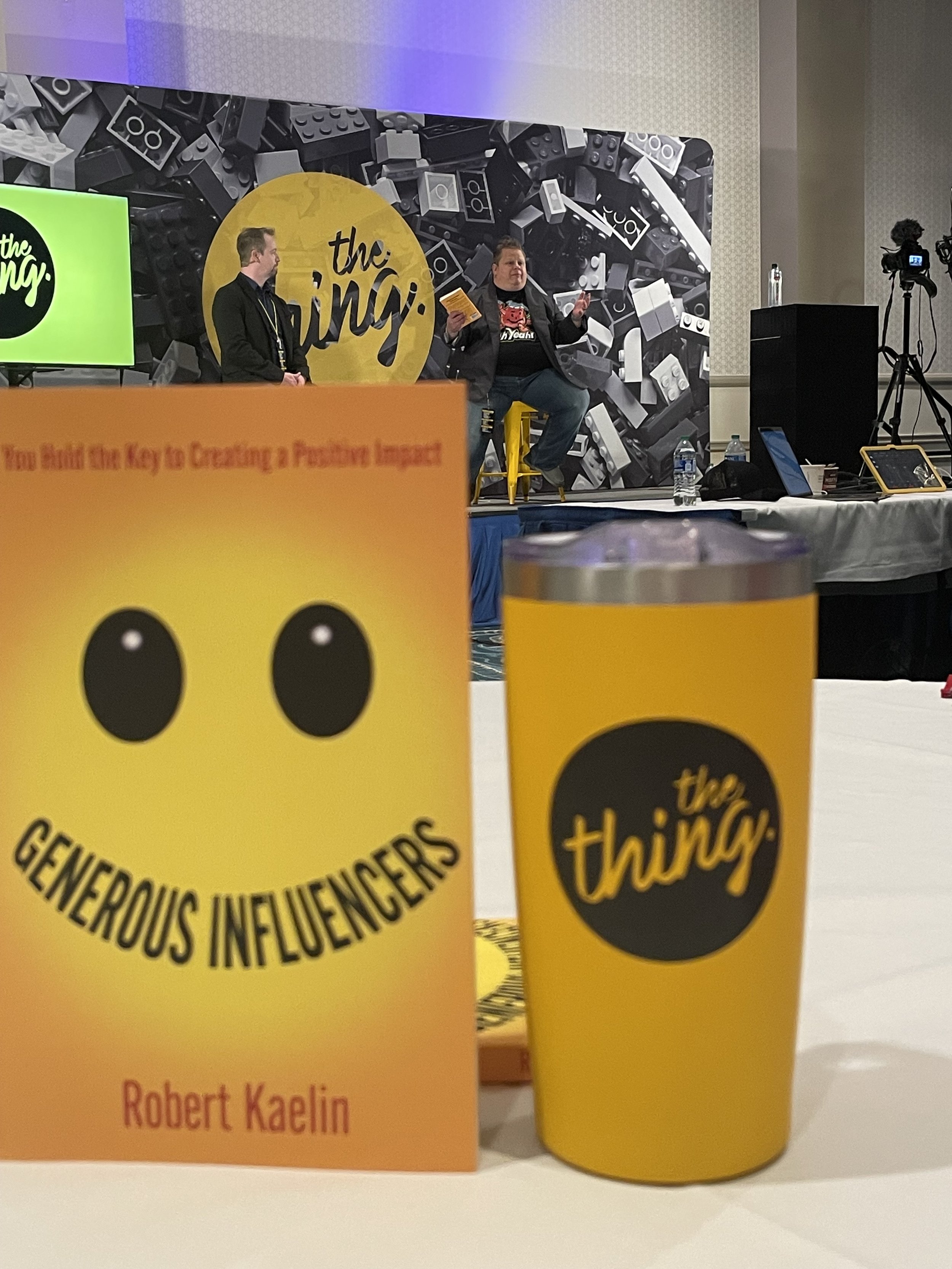Overcome Imposter Syndrome to Thrive
I sat in that kitchen listening to the introductions and all I could think was, “I don’t belong in this room.”
A few years ago, I attended my very first business retreat. I knew no one. At that time, my ghostwriting business was a very small one. I was nowhere near being a top-paid ghostwriter in the industry. My income was barely covering the monthly membership for this business community I had joined.
It was easy to show up weekly to the zoom calls and soak it all in. But now we were in person. No computer screen to hide behind. No website to explain my services. I felt raw and completely exposed to a room full of, “much smarter,” “much better",” and “much more qualified” people than I was. What was worse? I had come wanting to create a whole new platform.
I entered the room full of high achievers and shook hands. I heard about the amazing businesses these people had, their income levels, and their multiple streams of income. I sat there, shrinking in my seat. “I don’t belong here,” my negative self-talk screamed repeatedly in my mind.
At one point, every person in that room had been me. They had walked bravely into a room of people they wanted to learn and grow from. They had taken a risk, a chance, and a big plunge for their businesses. They wanted valuable insights and new opportunities and did exactly what I was doing by attending this retreat.
I didn’t think of it that way, though.
I only saw my inadequacies, “IMPOSTER ENTERING!”
As I sit here writing this, I am positive that every one of you reading this has felt this at one time. Imposter syndrome is a common term that many are familiar with.
If you weren’t familiar with that term before this minute, I’ve just described it above. In general, its feelings of inadequacy swirled with low self-esteem and feelings of self-doubt served alongside a steaming pile of negative thoughts.
Now you can put a term to that awful feeling(s) you have had, and maybe even currently have, when it comes to different things in your life and business.
I've learned that successful people have an internal narrative that helps them overcome their fear of failure. They learn to use personal experiences, high expectations, and positive self-talk to fuel their hard work. They don't let the prevalence of imposter syndrome keep them immobile. They push past the imposter feelings, embrace high standards, and surround themselves with high-achieving individuals as motivation.
The funny thing about imposter syndrome is that it can sneak up on you even when you’ve been a master of your industry/craft for a long time.
Recently, a coaching client I had went through a few rounds with imposter syndrome. He is a pretty confident guy and has been in business for a long time. But now, he is taking a leap and writing a book. His words matched those of many: “I’m not a writer,” and “Why would people listen to me?”
These are two very common imposter syndrome pushbacks that I hear often.
We all have a story to tell. We have all navigated things in life. We’ve conquered and been conquered. We’ve succeeded and failed abysmally. We’ve cried. We’ve lost. We've overcome a lot of pressure. We’ve achieved. Many of us have figured out how to put some of those learning experiences down in order to help others along the way.
That is why we all have a story to tell.
Sure, maybe it’s just one that your own family would want to read about.
Author & Entrepreneur Robert Kaelin and Author & Entrepreneur Terry Weaver at The Thing Conference Orlando Fall 2023.
But maybe, just maybe, it’s destined to help the masses. If that’s the case, it’s our responsibility to do so. Why? Because I believe in being a
You are uniquely bespoke to tell your story and share your own abilities, knowledge, and professional growth. If it’s in your heart to do so, you must push through the imposter syndrome and do it! Those negative messages that we can often hear loudly can keep us from achieving our own success. They can keep us from seeing it, too.
Our brain will resist change when it can. In The Power of Habit, Charles Duhigg discusses how and why the brain resists change. In truth, it's sort of like many of us—comfortable and a little bit lazy.
The brain wants to automate as much as possible so it doesn't have to work so hard. I mean, hey, it's busy up there managing things like taking a deep breath, making our eyelids blink, and growing new skin cells. It's exhausting, and now we want to push it to grow, learn, and try new things. Nope, no thanks.
The brain isn't interested. But we are. So we need to be prepared for the feelings of imposter syndrome when we take on new endeavors like, let's say... writing a book. Prepare and embrace new challenges no matter how inadequate that imposter syndrome tries to make you feel.
I could have stood immobile all those years ago, surrounded by high-achieving women and men. Wrapped in my own impostor syndrome, I could have stayed in my comfort zone and chosen not to look at the people in that room as the most prestigious university of entrepreneurs.
I didn't, though. That weekend, my personal and professional life were forever altered when I decided to reach my full potential by embracing the professional development that I knew I needed. Those people were the way forward, not an impassable wall.
As Dr. Suess has taught us, “Today you are You, that is truer than true. There is no one alive who is Youer than You.”
Feeling imposter syndrome is a growing pain we navigate, but it should never be used as a prison. Don’t let it keep you walled off and inside. Instead, acknowledge it and look for the support you need to reach that goal anyway. Because the truth is, you belong in this room!


